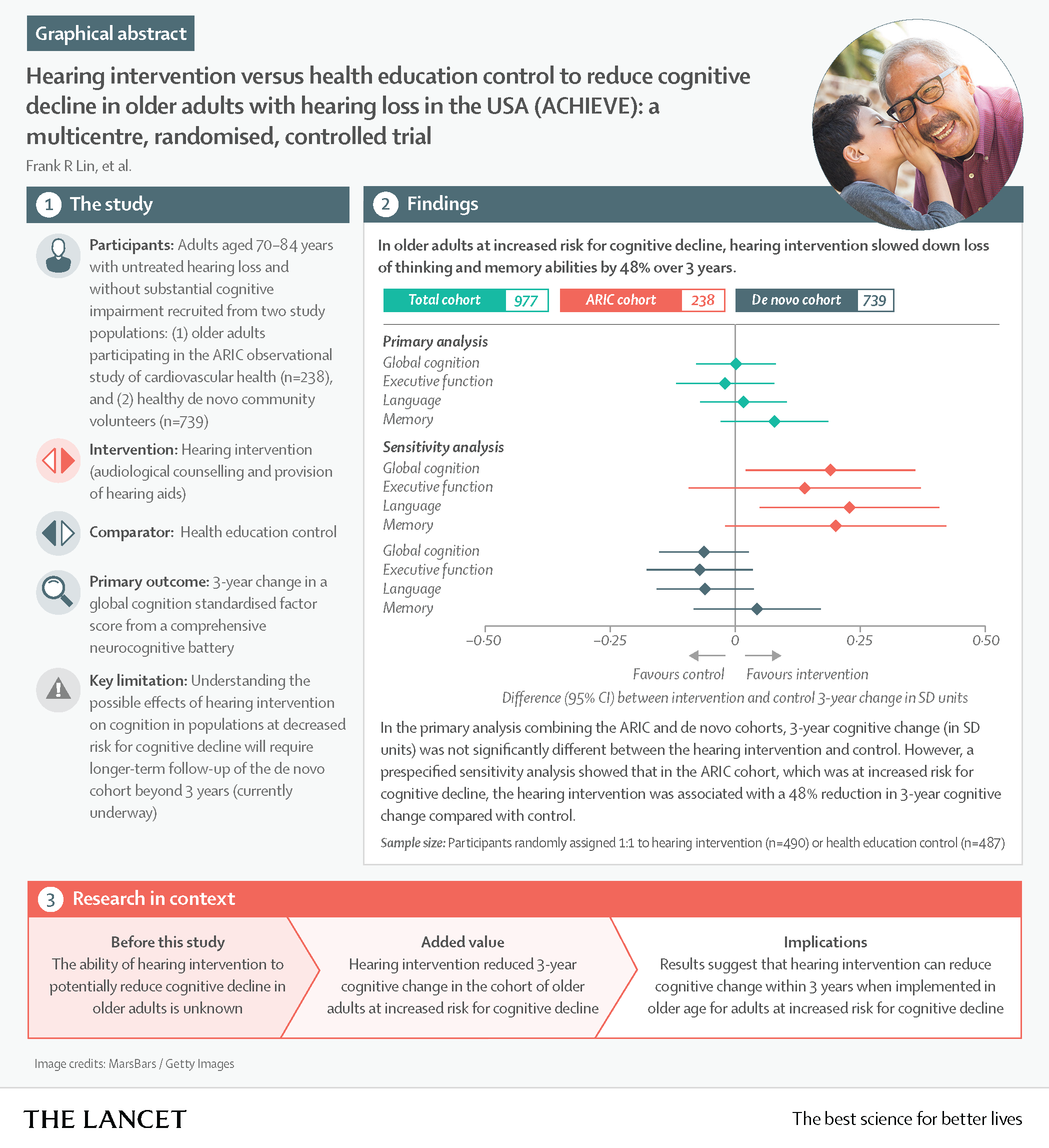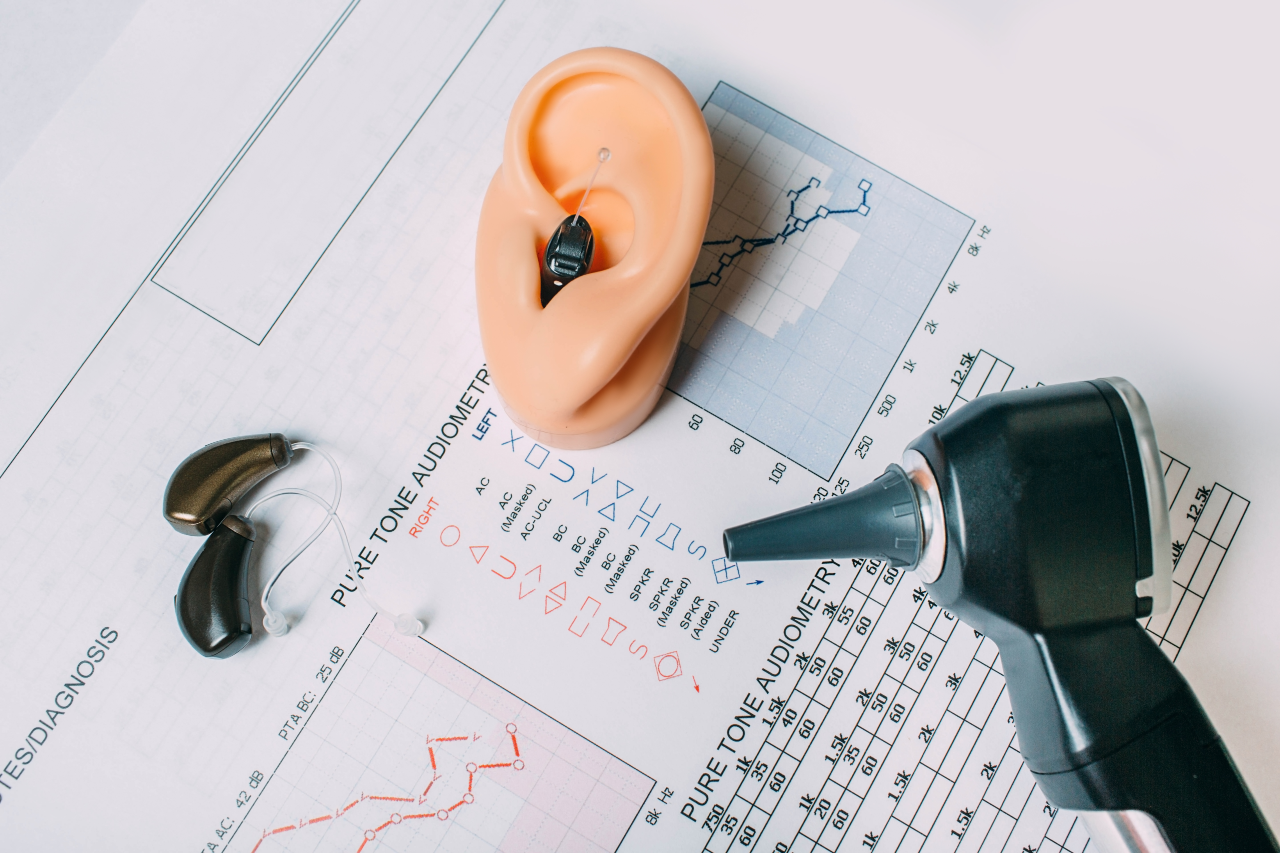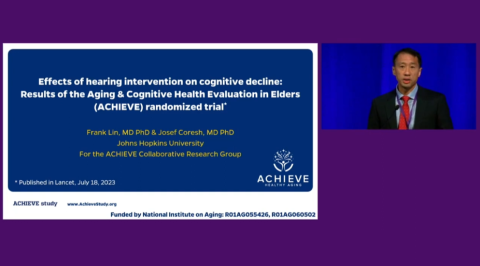

Key Findings
ACHIEVE Study Main Finding
In older adults at increased risk for cognitive decline, hearing intervention slowed down loss of thinking and memory abilities by 48% over 3 years.
Principal Investigators Frank Lin and Josef Coresh presented the main study results on Tuesday, July 18, 2023 at the Alzheimer's Association International Conference in Amsterdam. Main results of the ACHIEVE study were published in the Lancet in July 2023 and presented concurrently at the Alzheimer’s Association International Conference in Amsterdam by co-principal investigators Frank Lin and Josef Coresh.
Participants in the ACHIEVE study came from two distinct study populations: a group of adults who were already participating in a heart health study and a group of healthy volunteers who were newly recruited from the community. The 238 participants who came from the heart health study were, on average, older and had more risk factors for cognitive decline than the 739 new healthy community volunteers.
When both group of participants were analyzed together, the hearing intervention was not better than the health education control on slowing declines in thinking and memory abilities, at the end of the 3-year study.
When both groups of participants were analyzed separately, researchers found that the effect of hearing intervention differed significantly between the two groups of participants:
--Hearing intervention benefited the heart health study participants the most. These participants were older and had more risk factors for cognitive decline. In this group, the hearing intervention reduced cognitive change by 48% over 3 years.
--In the newly recruited healthy volunteer group, hearing intervention had no effect on reducing cognitive decline within 3 years.
Investigators believe that the effect of the hearing intervention on reducing cognitive decline was only apparent in the heart health study participants because this group had a faster rate (3-fold faster) of cognitive decline over the study period than the healthy volunteer group.
Thinking and memory abilities changed more slowly in the newly recruited healthy volunteer group. When thinking and memory abilities change slowly, it is harder to see if a hearing intervention program can further slow any declines in these abilities.
Investigators believe that the hearing intervention could also have beneficial effects on reducing cognitive decline in the healthy volunteer group. These effects may take longer than 3 years to see. Study investigators are continuing to follow all ACHIEVE study participants beyond 3 years to look at longer term effects of hearing intervention on cognition and other health outcomes, including brain health, mental health and well-being, physical function, and health care use.
-

Alzheimer's Association International Conference
ACHIEVE at AAICInitial Main Findings of ACHIEVE study
-

ACHIEVE researchers conducted secondary analyses of the ACHIEVE study to investigate the effect of hearing intervention (versus a successful aging health education control intervention) on other health outcomes.





